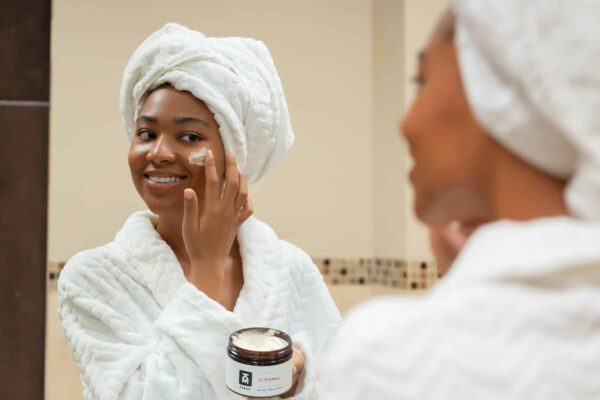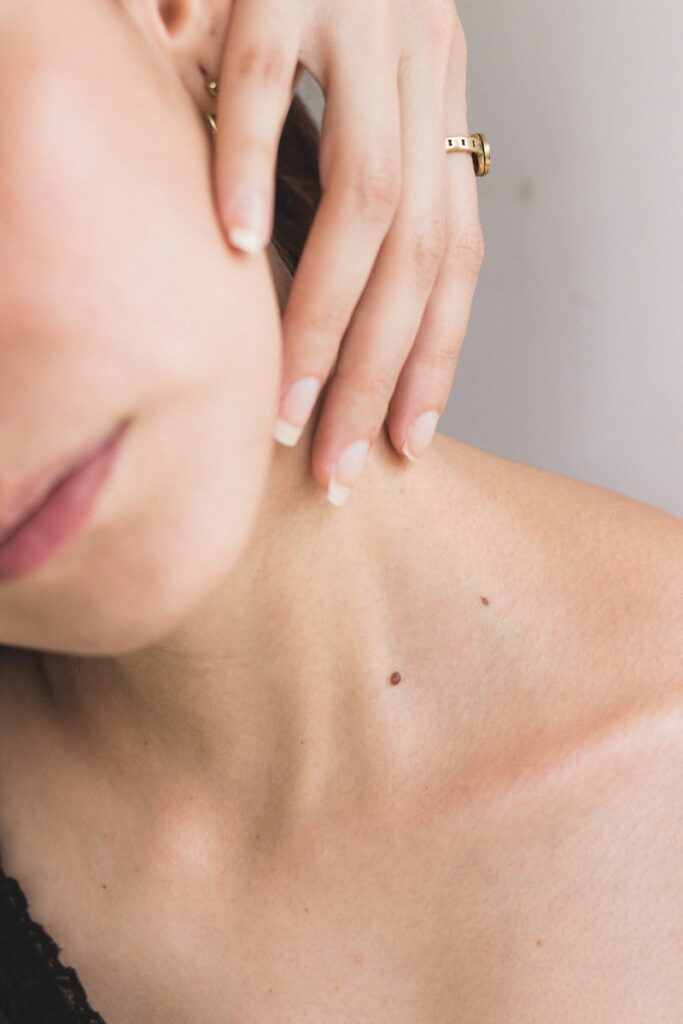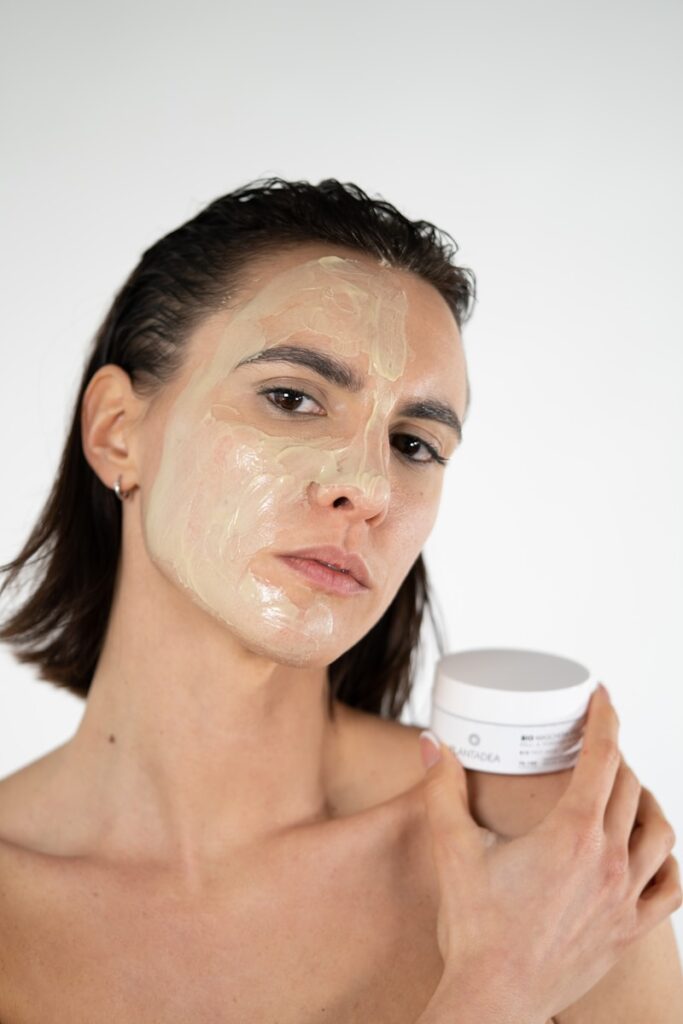
Newsletter Subscribe
Enter your email address below and subscribe to our newsletter

A proper skincare routine is essential for maintaining healthy, glowing skin. However, even with the best intentions, many people unknowingly make mistakes in their daily routines that can hinder their skin’s health or even cause long-term damage. In this article, we’ll explore ten common skincare mistakes, how they affect your skin, and offer practical solutions to ensure your routine is as effective as possible.
One of the most common mistakes in skincare routines is focusing solely on the face and forgetting about the neck. The skin on the neck is delicate, similar to that on your face, and is prone to signs of aging like sagging, wrinkles, and discoloration. By stopping your routine at the chin, you’re neglecting an area that often gives away your age sooner than your face.
The neck is exposed to the same environmental stressors as the face, such as UV rays, pollution, and the effects of gravity. Failing to apply moisturizer, sunscreen, and anti-aging treatments to the neck can lead to premature aging, dryness, and uneven skin tone.

Treat your neck as an extension of your face. Apply the same serums, moisturizers, and sunscreens to your neck and décolletage. If you use anti-aging products like retinol or peptides, be sure to extend those treatments below the chin for comprehensive care.
Over-cleansing or using harsh products can strip your skin of its natural oils, leading to irritation, dryness, and breakouts. While it’s tempting to use stronger cleansers or exfoliants to tackle issues like acne or oiliness, these products often do more harm than good.
When you use products that are too harsh, such as those with high concentrations of alcohol or strong exfoliants, you disrupt your skin’s protective barrier. This can lead to inflammation, increased sensitivity, and can even exacerbate conditions like rosacea or eczema.
Opt for gentle, pH-balanced cleansers and exfoliants that respect your skin’s natural barrier. Look for ingredients like glycerin or hyaluronic acid that hydrate while cleansing. Limit physical exfoliation (like scrubs) to once or twice a week, and avoid products with high alcohol content that dry out your skin.
Skipping or skimping on moisturizer is a common mistake, especially for those with oily or acne-prone skin who fear that adding more moisture will clog pores. However, every skin type needs hydration, and the right moisturizer can help balance the skin.

Without adequate moisture, your skin can become dehydrated, leading to dullness, flakiness, and even an overproduction of oil as your skin tries to compensate. This can create a vicious cycle where lack of moisture leads to oiliness and breakouts.
Use a moisturizer tailored to your skin type. For oily or acne-prone skin, opt for lightweight, non-comedogenic (won’t clog pores) moisturizers that provide hydration without making your skin greasy. Ingredients like hyaluronic acid and squalane are excellent for hydrating all skin types without adding oil.
Constantly switching between skincare products or trying too many new products at once is a common mistake that can overwhelm your skin. While it’s fun to try the latest serums and masks, overloading your skin with new products can lead to irritation, breakouts, and confusion about what’s working.
Your skin needs time to adjust to new products, and using too many new ingredients simultaneously can cause reactions, making it hard to pinpoint what’s causing issues. It also disrupts your skin’s natural balance, leading to inflammation and sensitivity.
Introduce new products one at a time, giving your skin at least two to four weeks to adjust before adding something new. This allows you to assess how your skin reacts and gives each product enough time to show results. Keep your core routine simple and only add new products that address specific concerns.
Not all skincare ingredients work well together. Using the wrong combinations can neutralize their effectiveness or, worse, irritate your skin. Some ingredients, like retinol and AHAs/BHAs (exfoliating acids), are too harsh when used together, while others, like vitamin C and niacinamide, can cancel each other out.
Mixing incompatible ingredients can lead to skin irritation, breakouts, or render both products ineffective. This not only wastes your time and money but can also damage your skin’s barrier.
Research the ingredients in your skincare routine to ensure they complement each other. For example, avoid using strong acids and retinol in the same routine, and be mindful of using vitamin C in the morning and retinol at night to avoid irritation. Stick to simple, effective combinations like vitamin C in the morning (for brightening and protecting) and retinol at night (for anti-aging and repair).
Serums are concentrated formulas designed to address specific skin concerns, such as hyperpigmentation, wrinkles, or dehydration. However, one mistake many people make is applying a serum and skipping the moisturizer afterward. Serums alone are not enough to lock in moisture.
Serums are often lightweight and contain active ingredients, but they lack the occlusive properties that seal moisture into the skin. Without a moisturizer on top, your skin may still feel dry or become dehydrated over time, diminishing the serum’s effectiveness.
Always apply a moisturizer after using a serum to lock in the active ingredients and provide hydration. The moisturizer creates a barrier that helps the serum work more effectively while keeping your skin hydrated throughout the day or night.
The skin around your eyes is much thinner and more delicate than the rest of your face, making it prone to fine lines, puffiness, and dark circles. Many people skip eye cream, thinking their regular moisturizer is enough, but this area often requires targeted care.
The eye area is often the first to show signs of aging and fatigue. Without proper hydration and treatment, fine lines and crow’s feet can develop prematurely, and puffiness or dark circles can become more pronounced.
Incorporate an eye cream into your routine, especially if you have concerns about aging, puffiness, or dark circles. Look for ingredients like caffeine (to reduce puffiness), peptides (to support collagen production), and hyaluronic acid (for hydration). Use your ring finger to gently pat the cream around your eyes, as this finger applies the least pressure.
Vitamin C is an excellent antioxidant that brightens skin, reduces hyperpigmentation, and fights free radical damage. However, using it when you have active acne can sometimes irritate your skin further, especially if you’re already using other acne treatments like retinoids or salicylic acid.
When your skin is inflamed from active breakouts, adding vitamin C, which can be acidic, may exacerbate irritation. This is particularly true if you’re already using exfoliating acids or acne treatments that make your skin more sensitive.
If you’re dealing with active breakouts, focus on calming your skin with gentle, non-irritating products like niacinamide (which reduces redness and inflammation) or centella asiatica (a healing herb). You can reintroduce vitamin C once your skin has calmed down, or try using it every other day in conjunction with a hydrating serum to reduce the risk of irritation.
Wearing sunscreen is essential for protecting your skin from UV damage, preventing premature aging, and lowering your risk of skin cancer. However, many people either don’t apply enough sunscreen or forget to reapply throughout the day, especially when spending extended time in the sun.
Sunscreen wears off throughout the day due to sweat, water, and general wear. If you don’t reapply, your skin is left vulnerable to UV rays, which can lead to sunburn, premature wrinkles, dark spots, and an increased risk of skin cancer.
Apply a broad-spectrum sunscreen with at least SPF 30 every morning as the last step in your skincare routine. When spending time outdoors, reapply every two hours and immediately after swimming or sweating. Use a lightweight, spray, or powder sunscreen for easy reapplication without disturbing your makeup.
Toner is often overlooked or considered an unnecessary step in skincare routines, but it plays a crucial role in balancing your skin’s pH and prepping it to absorb other products. Skipping toner means missing out on hydration and the benefits of enhanced product absorption.
After cleansing, your skin’s natural pH balance can be disrupted, leaving it either too dry or too oily. Toner helps restore this balance while removing any lingering impurities. Without toner, your skin may not fully absorb the serums or moisturizers applied afterward, reducing their effectiveness.
Incorporate a hydrating, alcohol-free toner into your routine, especially if you have dry or sensitive skin. Look for toners with ingredients like rose water, witch hazel (for oily skin), or aloe vera to soothe and hydrate the skin. Apply it with a cotton pad or pat it directly onto your skin after cleansing.
Maintaining a healthy skincare routine requires consistency, knowledge, and an understanding of your skin’s unique needs. By avoiding these common mistakes—such as neglecting your neck, experimenting with too many products, or forgetting to reapply sunscreen—you can ensure your routine is optimized for the best results. A thoughtful, well-executed skincare routine will not only keep your skin glowing and healthy but also help prevent premature aging and other skin concerns.